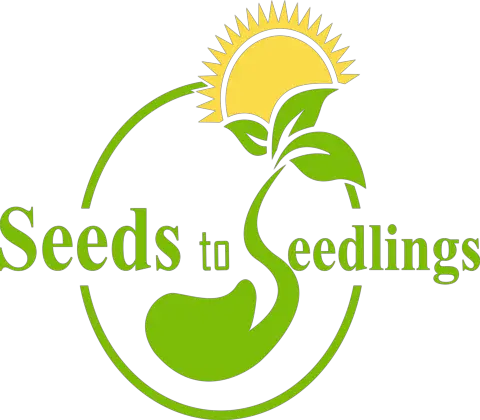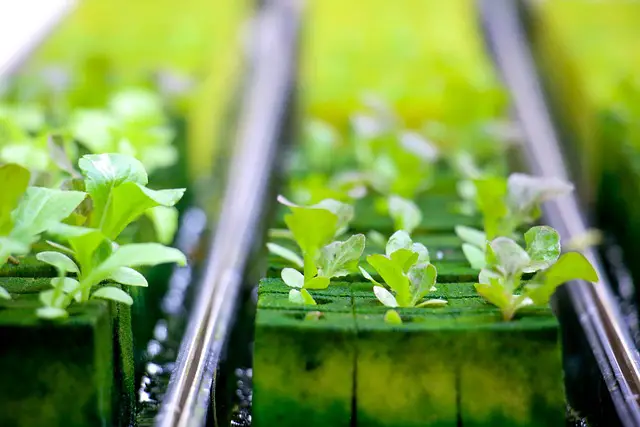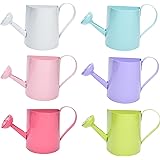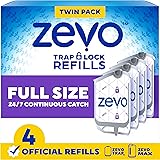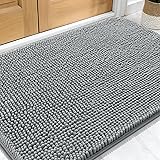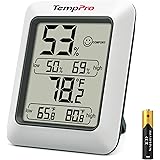Which is more profitable: hydroponics or aquaponics? This is a question that many people are asking as they explore alternative methods of growing food. Hydroponics and aquaponics are both sustainable farming practices that can reduce water usage and provide higher yields than traditional soil-based farming. In this blog post, we will look at the relative profitability of both hydroponics and aquaponics to help you decide which method is right for you.
The Pros and Cons of Hydroponics
Hydroponics is a method of growing plants in nutrient-rich water, instead of soil.
It is a popular form of indoor gardening and is becoming increasingly popular among commercial growers due to its higher yields and lower labor costs.
While hydroponics has many advantages, it is important to understand both the pros and cons before making an investment.
Let’s get to know about the pros first.
1. Faster Growth Rates
Hydroponic systems allow plants to access more oxygen and nutrients, which can lead to faster growth rates than traditional soil-based gardens. This can be especially beneficial for commercial growers looking to get their crops to market quickly.
2. Higher Yields
With the increased access to oxygen and nutrients, plants grown in hydroponic systems tend to yield more fruit or vegetables than those grown in soil. This can be great for large-scale operations looking to maximize their profits.
3. Less Space Needed
Hydroponic systems take up significantly less space than traditional soil gardens, allowing you to grow more in a smaller area. This can be great for urban gardeners who don’t have a lot of outdoor space to work with.
Here are some of the significant cons of hydroponics.
1. More Expensive Setup Costs
Setting up a hydroponic system can be expensive, as you will need to purchase pumps, nutrient solutions, and other specialized equipment. This can make the initial investment too high for some gardeners.
2. Risk of Contamination
Because hydroponic systems rely on water, they are at a higher risk of contamination than traditional soil-based gardens. Contamination can come from a variety of sources, such as insects, bacteria, and chemicals.
3. Increased Labor Costs
Although hydroponic systems require less labor than traditional gardens, they still require more labor than soil-based ones.
In particular, you will need to monitor the system for pH balance, nutrient levels, and water quality on a regular basis.
Additionally, if any parts of your system break down, you may need to hire someone to repair them, resulting in added expense.
The Pros and Cons of Aquaponics
Aquaponics is an innovative way of growing plants and raising fish together in a symbiotic environment.
This method of farming offers many advantages and some drawbacks, so it’s important to be aware of both before investing in an aquaponic system.
At first, let’s get to know about the pros of aquaponic.
1. High Efficiency
Aquaponics uses about 10% of the water used in traditional gardening, making it incredibly efficient and cost-effective.
2. No Pesticides
Aquaponics systems don’t require the use of any chemical pesticides, which can be harmful to the environment and people.
3. Low Maintenance
Compared to traditional gardening, aquaponics requires much less maintenance, as all that needs to be done is ensure the tanks and pumps remain clean.
4. Year-Round Growing
Aquaponics systems can grow plants year-round, allowing for a continuous supply of produce.
5. No Soil Needed
As aquaponics systems don’t use soil, they’re able to be set up almost anywhere, making them ideal for urban or rural settings.
Now it is time to know about the cons of aquaponics:
1. Expensive Setup
The initial setup of an aquaponic system can be quite expensive, as it requires special tanks and equipment, such as pumps, air stones and more.
2. Potential for Disease
Due to the closed environment of the system, there is potential for the spread of disease between fish and plants, so careful monitoring is key.
3. Variables Can Affect Growth
As with any growing system, some variables can affect plant growth, such as water temperature and pH levels.
4. Limited Species
Not all species of plants or fish can thrive in aquaponics systems, so choices may be limited when setting up a system.
5. Requires Knowledge
As aquaponics systems require knowledge of not only aquaculture but also hydroponics, it can be difficult to manage without the right expertise.
It’s best to start small and slowly build up your knowledge as you go along. Also, due to the need for oxygenated water, aquaponics systems typically have fewer plants than other types of gardening.
Therefore, this type of farming might not be suitable if you’re looking to maximize profits.
Overall, while aquaponics has its advantages, due to its high startup costs and need for expertise it may not be the most profitable option compared to hydroponic systems.
Which One is More Profitable?
When it comes to choosing between hydroponics and aquaponics for profitability, the answer isn’t so clear cut.
Both systems have their benefits and drawbacks when it comes to profitability.
Hydroponics is often touted as being more profitable because of its high yields and relatively low setup costs.
Additionally, the environment you create for the plants is very controllable, allowing you to produce consistently high quality produce.
However, hydroponics does require more water, nutrients, and electricity than aquaponics, which can be a major cost factor.
Aquaponics, on the other hand, is a much more sustainable system that requires less input energy and resources than hydroponics.
The plants are fed by the waste products of the fish, reducing the need for fertilizer and other inputs.
Plus, the integrated fish production aspect can increase your overall profit margin.
However, setting up an aquaponic system can be more expensive due to the complexity of the system and the need to maintain a healthy balance of fish and plant life to produce high yields.
At the end of the day, there is no one-size-fits-all solution when it comes to choosing which system is more profitable.
Depending on your goals and resources, either system can work well for you.
If you’re looking for high yields with minimal input energy and resources, hydroponics might be your best bet.
But if you’re looking for a more sustainable system that produces both plants and fish, aquaponics might be a better choice.
Ultimately, the decision comes down to your unique situation and which system you think will be most profitable for you.
Frequently Asked Questions (FAQs)
Hydroponics is a type of gardening system that allows plants to be grown without soil. Instead, the plants grow in water that is enriched with nutrients, oxygen, and other minerals. This method of growing plants has many benefits including reduced water usage and better control over nutrient levels.
Aquaponics is a type of farming system that combines hydroponics and aquaculture. In aquaponics, plants are grown in nutrient-rich water that is recycled from a fish tank. The water is enriched with nutrients from the fish waste, which helps the plants to grow. Aquaponics can be a great way to produce sustainable food in a limited space.
The answer to this question will depend on your individual situation and goals. Hydroponics is often seen as more profitable due to its shorter crop cycle and higher yields per square foot. However, aquaponics may offer some advantages such as less water usage, sustainability, and potentially higher margins when selling products directly to consumers.
Hydroponics offers many advantages such as shorter crop cycles, high yields per square foot, and easy control over nutrient levels. Aquaponics offers a more sustainable approach with fewer water needs and the potential for higher margins when selling products directly to consumers. Additionally, aquaponics can be used as an educational tool to teach children about food production.
Both hydroponics and aquaponics can be expensive to set up and maintain. Additionally, hydroponics requires frequent monitoring of pH levels and nutrient levels, while aquaponics requires regular water changes and fish feedings. Both methods also require a large amount of energy for lighting and pumps.
Wrapping Things Up
If you are thinking about the question “Is hydroponics or aquaponics more profitable?” then the answer will be whether hydroponics or aquaponics is more profitable will depend on the specific situation and goals of the grower. Both systems have their own advantages and disadvantages, and the best system for a particular farmer will depend on their specific circumstances.
Ultimately, it’s important to weigh the costs, potential yields, and market prices before deciding which system to use. It is also significant to consider the cost of setup and maintenance, as well as the potential for crop yields and market prices. Additionally, the space and resources available to the grower will also play a role in determining which system is more profitable.
Auto Amazon Links: No products found.
Perfect Plants Christmas Tree Saver 8oz. | Easy Use Xmas Tree Preserver Food | Have Healthy Green Christmas Trees All Holiday Season
$16.99 (as of February 11, 2026 00:40 GMT +00:00 - More info- Product prices and availability are accurate as of the date/time indicated and are subject to change. Any price and availability information displayed on [relevant Amazon Site(s), as applicable] at the time of purchase will apply to the purchase of this product.
VEVOR Tree Watering Bags Slow Release, 4 Pack 16 Gallons Tree Watering Ring, Reusable Refillable Tree Irrigation Ring Water Bags, Heavy Duty Watering System for Shrub Tree Root Drip Irrigation
$29.99 (as of February 11, 2026 00:40 GMT +00:00 - More info- Product prices and availability are accurate as of the date/time indicated and are subject to change. Any price and availability information displayed on [relevant Amazon Site(s), as applicable] at the time of purchase will apply to the purchase of this product.
Wilt-Pruf® Christmas Tree/Cutting Preserver Spray |Preserves Christmas Trees, Wreaths, Garlands, Cuttings and Carved Pumpkins | Reduces Needle Drop | Keeps Cut Trees Fresh Longer | Natural (32 oz)
$21.99 (as of February 11, 2026 00:40 GMT +00:00 - More info- Product prices and availability are accurate as of the date/time indicated and are subject to change. Any price and availability information displayed on [relevant Amazon Site(s), as applicable] at the time of purchase will apply to the purchase of this product.
Mini Decorative Metal Watering Can, Set of 6, Height 1.97 inch, Cute Metal Jug for Hand Crafts,Garden Theme Parties, Home and Refrigerator Decor
$8.99 (as of February 11, 2026 00:40 GMT +00:00 - More info- Product prices and availability are accurate as of the date/time indicated and are subject to change. Any price and availability information displayed on [relevant Amazon Site(s), as applicable] at the time of purchase will apply to the purchase of this product.
Rocky Mountain Goods Christmas Tree Food - 8 oz Tree Preservative - Reduce Needle Drop - Greener Scent - Fir, Pine, Spruce Trees - Extend Tree Life
$9.95 (as of February 11, 2026 00:40 GMT +00:00 - More info- Product prices and availability are accurate as of the date/time indicated and are subject to change. Any price and availability information displayed on [relevant Amazon Site(s), as applicable] at the time of purchase will apply to the purchase of this product.
TERRO Ant Killer Bait Stations T300B - Liquid Bait to Eliminate Ants - Bait System - 12 Count Stations for Effective Indoor Ant Control
$11.97 (as of February 11, 2026 22:10 GMT +00:00 - More info- Product prices and availability are accurate as of the date/time indicated and are subject to change. Any price and availability information displayed on [relevant Amazon Site(s), as applicable] at the time of purchase will apply to the purchase of this product.
Wagner's 53002 Farmer's Delight Wild Bird Food with Cherry Flavor, 10-Pound Bag
$12.48 (as of February 11, 2026 22:10 GMT +00:00 - More info- Product prices and availability are accurate as of the date/time indicated and are subject to change. Any price and availability information displayed on [relevant Amazon Site(s), as applicable] at the time of purchase will apply to the purchase of this product.
Zevo Flying Insect Trap Official Refill Cartridges - Fits Both Zevo Trap & MAX Indoor Fly Trap - Authentic Trap+Lock Technology to Catch Gnats, House & Fruit Flies (4 Official Refill Cartridges)
$14.97 (as of February 11, 2026 22:10 GMT +00:00 - More info- Product prices and availability are accurate as of the date/time indicated and are subject to change. Any price and availability information displayed on [relevant Amazon Site(s), as applicable] at the time of purchase will apply to the purchase of this product.
OLANLY Dog Door Mat for Muddy Paws 30x20, Absorbs Moisture and Dirt, Absorbent Non-Slip Washable Doormat, Quick Dry Chenille Mud Mat for Dogs, Entry Indoor Entryway Carpet for Inside Floor, Grey
$9.49 (as of February 11, 2026 22:10 GMT +00:00 - More info- Product prices and availability are accurate as of the date/time indicated and are subject to change. Any price and availability information displayed on [relevant Amazon Site(s), as applicable] at the time of purchase will apply to the purchase of this product.
TempPro TP50 Digital Hygrometer Indoor Thermometer Room Thermometer and Humidity Gauge with Temperature Humidity Monitor(Previously ThermoPro)
$9.99 (as of February 11, 2026 22:10 GMT +00:00 - More info- Product prices and availability are accurate as of the date/time indicated and are subject to change. Any price and availability information displayed on [relevant Amazon Site(s), as applicable] at the time of purchase will apply to the purchase of this product.
